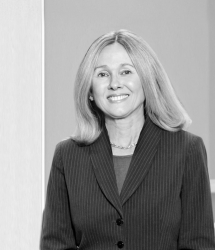Framingham Adopts “Transfer of Development Rights” Economic Development Tool
Framingham’s efforts to include in its municipal planning toolbox a powerful “smart growth” mechanism allowed by the state’s Zoning Act came to fruition earlier this week. With its 114 to 14 vote, Framingham Town Meeting overwhelmingly supported the Planning Board’s proposed warrant article to add the so-called Transfer of Development Rights (“TOD”) By-Law to the Town’s Zoning By-Law, adding Framingham to a growing list of Massachusetts municipalities allowing transfer of potential development to other locations.
The TOD By-Law provides, without cost to the Town, economic incentives to owners of large tracts of buildable land in residential districts to encourage them to make choices other than building or selling their land for development. This is accomplished by giving participating developers an ability to permanently “buy” those rights in order to construct denser commercial projects. The priority development areas eligible for TOD development are in three locations which now qualify for expedited permitting under state law – the Technology Park, the 9/90 Corporate Center and The TJX Company’s corporate headquarters at Cochituate Road and Speen Street.
Through the new TOD By-Law, five contiguous acres of land such as farms and undeveloped residentially zoned property which could be developed may be deemed a TOD “Giving Parcel”. Holders of Giving Parcels may “sell” through a private negotiation their right to build to a commercial developer who seeks to build in a priority development area. Upon demonstration of an agreement between the parties for the transfer of rights, and a professionally prepared “yield plan” showing how many new residences could have been built on a Giving Parcel if fully developed, the By-Law’s formula will be applied to credit the developer with additional square footage beyond the limits of existing regulations. The formula is scaled to account for property value variability across different residential zoning districts. A developer may assemble rights from more than one holder of Giving Parcels for a project, and to the extent that the developer purchases rights beyond what it may apply to its project, it may sell those rights to another developer.
Other requirements include that the residential landowner must agree to restrict the property in perpetuity with an agricultural or conservation restriction, and that the developer must apply for a Special Permit to the Planning Board for the denser proposed development, which permit requires a “supermajority” (4 out of 5) vote. If approved, the developer would gain valuable additional square footage, and other density bonuses for building height, number of stories, lot coverage and floor-area ratio, all significantly higher than the maximums allowed without the development rights transfer, up to maximums provided in the TOD By-Law.
The TOD By-Law takes effect immediately, although it is subject to review by the Attorney General’s Municipal Unit.
See more coverage by the Worcester Business Journal and the MetroWest Daily News.
Categorized: Zoning




